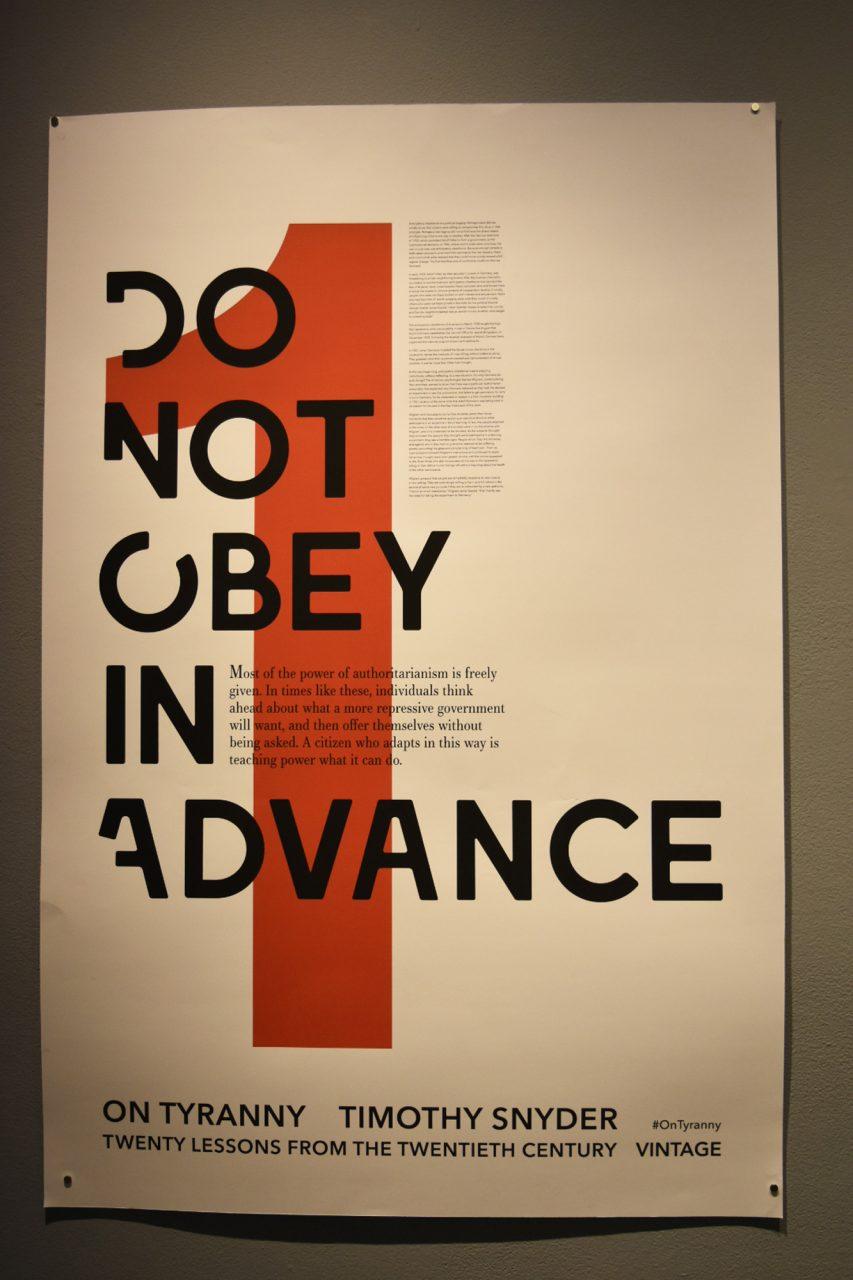Two of four discussions were held by the Humanities Council concerning Timothy Snyder’s book “On Tyranny: Twenty Lessons from the Twentieth Century,” which will include Snyder’s speech at the Humanities Council Symposium this Friday.
Snyder is the Housum Professor of History at Yale University and has authored six award-winning books. His most recent book, “On Tyranny” is a discussion of the values America was founded on and where America is in the aftermath of the 2016 election.
Topics range from resistance to patriotism and fake news to preserving the rule of law. Faculty from a variety of departments, as well as members of the Boone community are scheduled to facilitate these discussions surrounding democracy to engage both students and professors at Appalachian State.
“What [our founding fathers] established through our constitution and our institutions is a democracy that has provided us with stability, has limited the passions of the extreme ends for the last 225 years or so,” Phillip Ardoin, chair of the government and justice studies department, said. “The question is: do those institutions and that form of democracy still work today?”
Throughout the discussions, questions were posed about engagement, hope, truth and power. By creating a conversational setting, many raised questions and concerns that Snyder’s book addressed.
A frustration that was shared across the board was the lack of political engagement in fellow citizens. Faculty encouraged students to share books, knowledge and information with their classmates and friends to help put an end to issues like voter apathy and lack of political knowledge.
“Not just the people that I know and people in my generation are battling internal political struggles about what to do and when,” Brit Westbrook, a freshman elementary education major, said. “Everyone from every generation is kind of feeling that same thing, that it’s not just 18 and 19-year-olds.”
These discussions were organized by Nancy Love, coordinator of the Humanities Council at App State.
“With its 2017-18 programs on ‘Sustaining Democracy,’ the Humanities Council hopes to promote a dialogue about democracy that explores its various meanings in the experiences of different peoples,” Love said. “What do these experiences suggest about the sustainability and vulnerability of western democracy? What future possibilities might emerge from considering alternative approaches to democracy?”
The two following discussions take place Sept. 27 as well as Oct. 4 and are entitled “Are you a patriot? The meanings of patriotism, populism and America First” and “Are your rights disappearing? Preserving the rule of law.” Snyder will be on campus to speak about his book on Friday.
Story by; Rachel Greenland, Intern News Reporter
Photo Credit; Lindsay Vaughn

